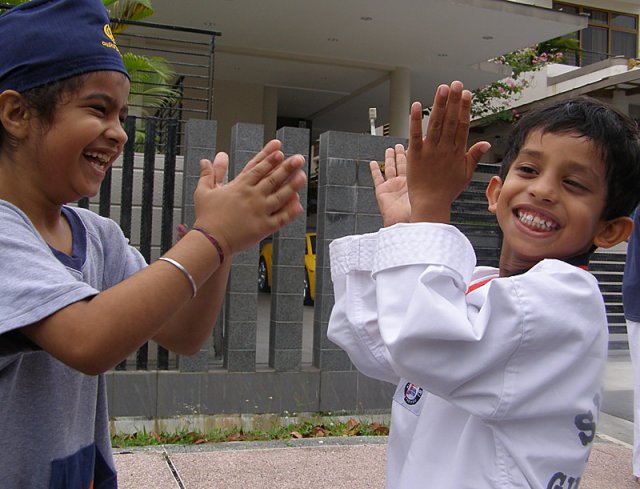Misunderstandings seem an inevitable part of human life. Often we see events beyond our control leading to unfortunate misunderstandings. It can be the source of much unhappiness and frustration. But, how do we solve these misunderstandings?
Each human being is doomed to stay
In a prison of misunderstanding.
Alas, when will the day dawn
When misunderstanding will be replaced
By heart-understanding
And soul-fulfilling
Summit-oneness?
1. Talk
Sometimes it’s good to talk. Don’t have any preconceptions or expectations but just seek to engage and try to simply suggest there may have been an unfortunate misunderstanding. Even, if you feel the other person is in the wrong, don’t start by blaming them. This is the worst thing as it could get worse. Just say, maybe there was something of a misunderstanding and perhaps you weren’t away of this. If you do it without judgement, you allow the other person to easily change their views.
Words can be the cause of misunderstanding, so take a moment to reflect before speaking. Don’t rush into something you later regret.
2. Don’t Feel Sorry for Yourself.
If we feel sorry for ourselves, we prevent the misunderstanding being resolved. This is because part of us is holding onto the victim hood of being a misunderstood. Rather than feeling sorry for yourself, seek the best way to create a more harmonious environment.
3. Give.
It is counter-intuitive to give in response to a misunderstanding. But, it can break the ice and show that you are willing to make the best of the situation. If you give unconditionally, it will bring out the best in other people. It will make them think what they can give in return or maybe you’re not such a bad person after all.
What to give, is something you will need to use your intuition. If you gave some flowers to someone at work, they may just feel embarrassed, to your life partner it may be the perfect thing. You can also give without giving anything materially. You can offer to act as peace-maker, you can give the benefit of the doubt to someone else, you can even just inwardly offer your goodwill; this positive energy will help.
4. Don’t Worry
The problem with misunderstandings is that we can feel bad if others see us as less than perfect. But, no-one is perfect, everyone makes mistakes or is the victim of misunderstanding. However, the mind can easily magnify the significance of what other people might be thinking. What is important is how we respond and act in this present moment, not what people temporarily thought about us in the past.
5. Keep Perspective
Many misunderstandings are much less significant than our mind manages to make them. When we speak to someone else they may not have even given it a second thought, but we thought it was super-important.
6. Don’t Dwell on Misunderstanding
A small misunderstanding can be magnified if we give it much of our attention. If we keep thinking about a situation, the power of thought makes it more real. Sometimes, it’s best to focus on something else and find areas of agreement and understanding. An interesting story. One boss banned emails on Fridays. He found emails where the source of many misunderstanding; on Friday, people had to leave their desks and actually speak to people they had been emailing. This solved many misunderstandings.
7. Don’t Suspect
“Suspect not, if you want your friendship to last long.
Expect not, if you want your friendship to last not only the longest, but forever.”
One of the most common causes of misunderstandings is wrongly assigning motives to someone else. If our mind is suspicious then we can easily create misunderstanding. If we have misunderstandings examine your thoughts about whether you have wrongly assigned motives.
Related




 I wish conversations skills were taught at school. We spend most of our life talking, and yet many people remain in the dark on this essential life skill. There are many suggestions for developing conversation skills, but, the most important is a sensitivity to the other person. We need to be able to adapt our conversation to whoever we speak with. We need to develop the right balance between talking and bringing out the best in the other person. If we can avoid being egotistical and consider the interests of others they will instinctively enjoy talking with us. If we offer boring conversation, we will only attract boring people to speak with.
I wish conversations skills were taught at school. We spend most of our life talking, and yet many people remain in the dark on this essential life skill. There are many suggestions for developing conversation skills, but, the most important is a sensitivity to the other person. We need to be able to adapt our conversation to whoever we speak with. We need to develop the right balance between talking and bringing out the best in the other person. If we can avoid being egotistical and consider the interests of others they will instinctively enjoy talking with us. If we offer boring conversation, we will only attract boring people to speak with.
